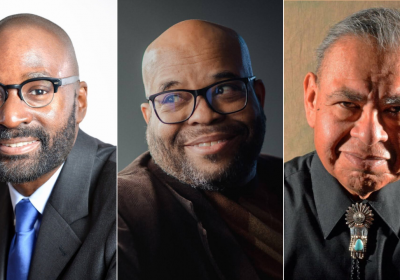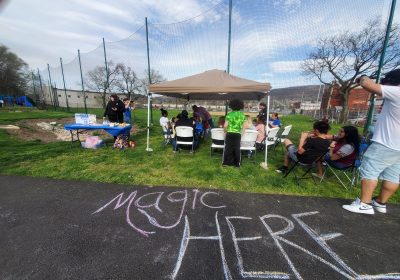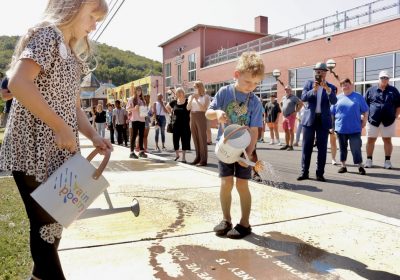By Karen Price
The room behind the gym at Pittsburgh’s Northview Heights neighborhood where YouthPlaces holds its afterschool programming buzzed with the sound of animated young voices.
The teens, working together in small groups, shouted out clusters of words to lend their ideas to the group effort underway. This was a Rain Poetry workshop, and they were writing haiku.
“It was really nice to see them excited about creating these poems,” YouthPlaces site manager Leanna Lyle said. “They were very rowdy, and if someone wasn’t in that space you would have thought they were arguing, but they were just excited about getting their poems together and creating them. And it was great to hear the conversation between them. It was amazing to see them talking without the phones, not texting but actually communicating with one another.”

PA Humanities created and piloted Rain Poetry last year in Philadelphia to help kick off the organization’s 50th anniversary. The innovative project engages children and teens in hands-on poetry activities facilitated by local teaching artists and poets, and the poems they create are then installed on the ground in public spaces with a special rain-activated solution. These temporary installations foster opportunities for community engagement with the humanities, learning and conversation, and recognition of the young poets’ creations.
This spring, Rain Poetry is in Pittsburgh and Johnstown. PA Humanities is partnering exclusively with out-of-school-time programs in Pittsburgh, including YouthPlaces.
YouthPlaces has multiple locations throughout Pittsburgh and their programming is designed to “show teens what it takes to succeed, providing them with the stepping stones they need to discover their full potential.” Their mission is to create safe spaces and experiences that inspire young people to imagine, explore and design their own futures. PA Humanities brought Rain Poetry to the location at Northview Heights, which is the largest property managed by the Housing Authority City of Pittsburgh.
Learning about and writing haiku poetry was different from their normal activities, Lyle said.
“They’re very active in this space in the sense that they’re always playing basketball, football, something like that,” she said.
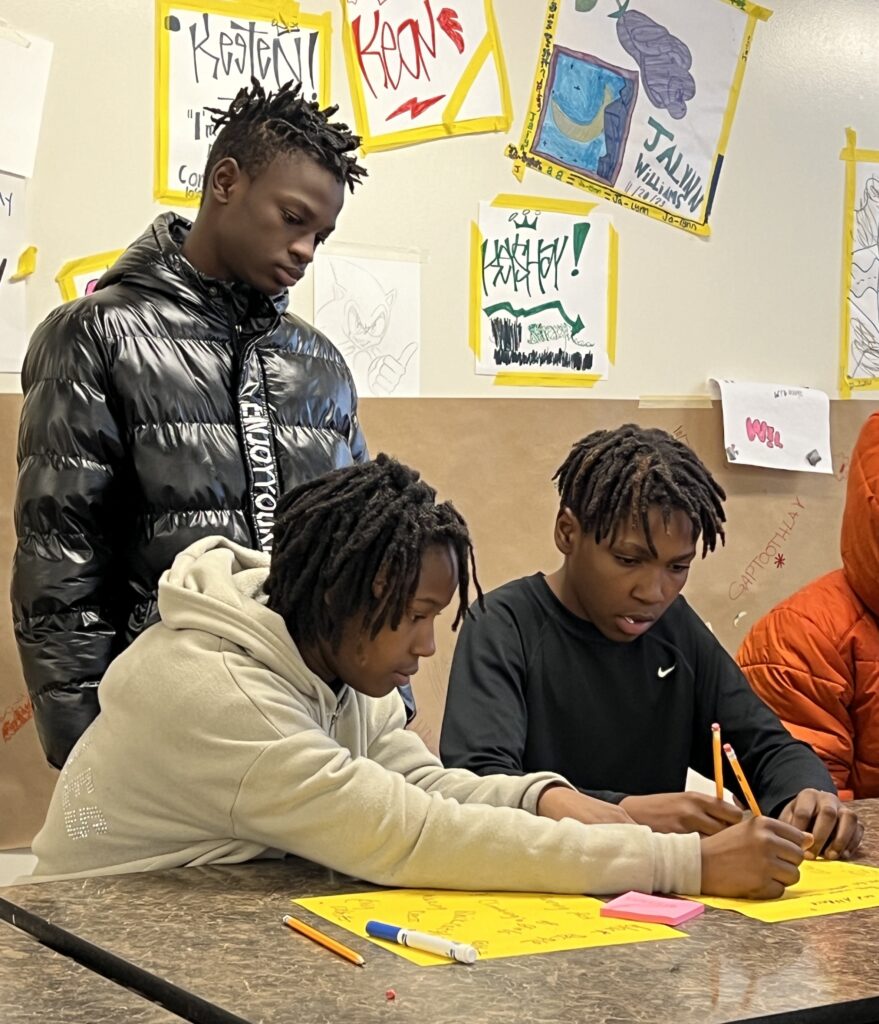
But Lyle’s main goal is to get the teens communicating with each other, and in that sense working together to write poetry fit perfectly. Lyle regularly engages the students in healthy cooking lessons, which not only provides them a skill for everyday living but also gives them the opportunity to do a hands-on activity that requires them to work together and talk.
Lyle began introducing the students to haiku even before Rain Poetry teaching artist Karen Howard held the first of two workshops. In the first workshop, Howard expanded on the concept of haiku and then had the students collaborate to create word banks based on the different senses, nature, the outdoors and their neighborhood.
The students continued to think about their poetry and what they might want to express with Lyle in between sessions, and devoted the second workshop to writing.
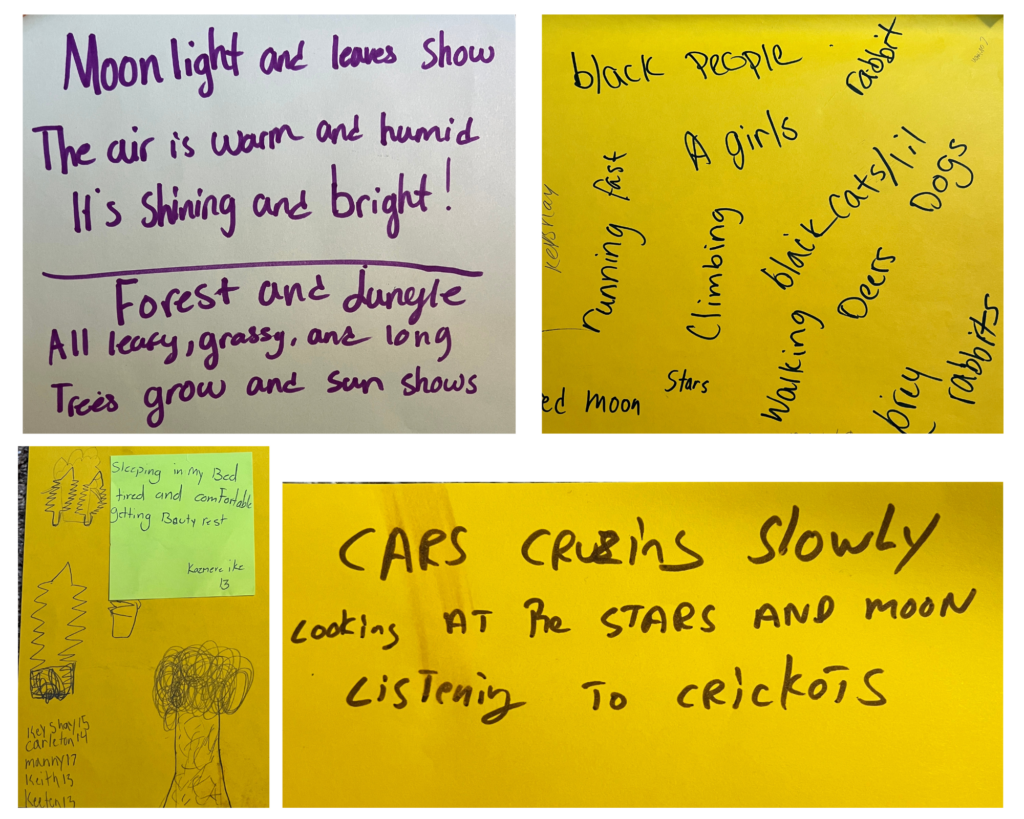
“That was very enjoyable for me because that’s my biggest thing is trying to get the kids off their phones and positively communicating with one another,” Lyle said. “The fact that they were debating what they were writing, saying, ‘That doesn’t sound right, let’s try this,’ they were problem solving. That right there – them talking to one another, debating what they were creating and problem solving in real time, I enjoyed that. It brought a smile to my face.”
The students who participated in Rain Poetry in Philadelphia all wrote on one common theme – “What helps you grow?” In Pittsburgh, each individual site is choosing its own theme. YouthPlaces wrote on the theme “Northview Nights” as a way to take control of the outside narrative that the neighborhood is a dangerous, scary place to be, especially after dark. Their poems reflect a young person’s life in a community where violence does exist, but laughter, games, togetherness, beauty and rest are a bigger part of their stories and experiences.
Lyle plans to build on the Rain Poetry workshops and incorporate more activities using the written word into their programming moving forward.
“A lot of them talk about music, but we’d never done an activity where they’re writing stuff down that could become music,” she said. “Poetry is the music they listen to and they don’t realize it. I love that we can open that door and a gateway to future activities (through Rain Poetry).”

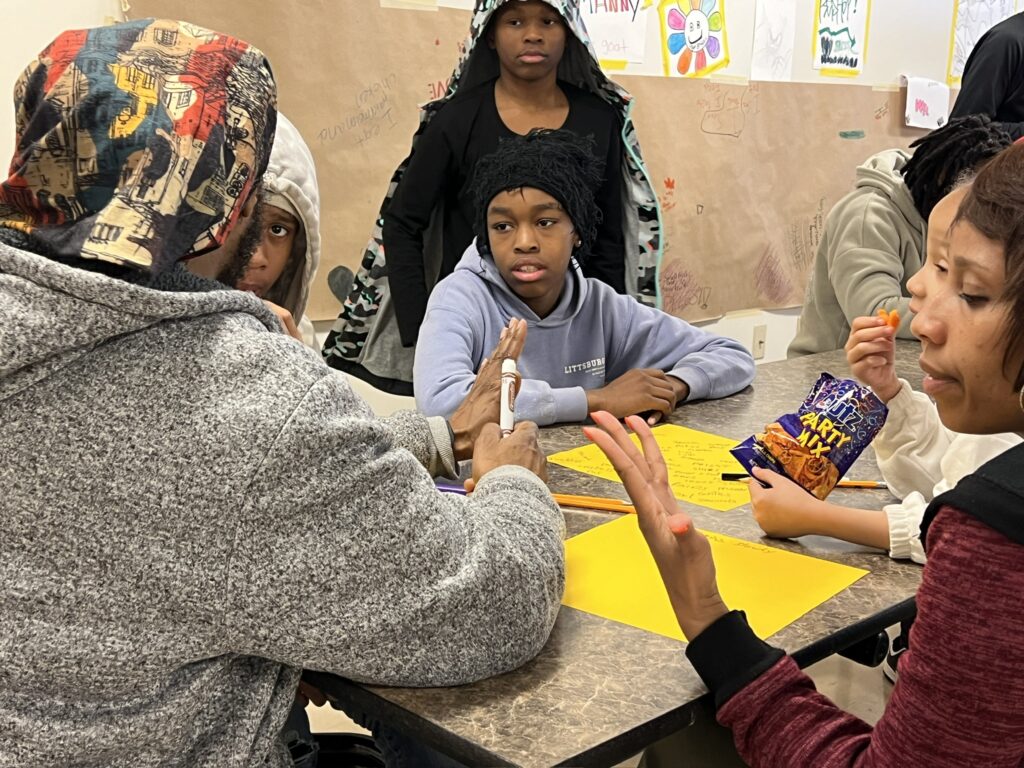
![[color – dark bg] PA SHARP FINAL FILES DB 72dpi [color - dark bg] PA SHARP FINAL FILES DB 72dpi](https://pahumanities.org/uploads/files/elementor/thumbs/color-dark-bg-PA-SHARP-FINAL-FILES-DB-72dpi-phgl7aimtfdpzt2rscvl43ksfv3asbbls19lsvuacw.jpg)
